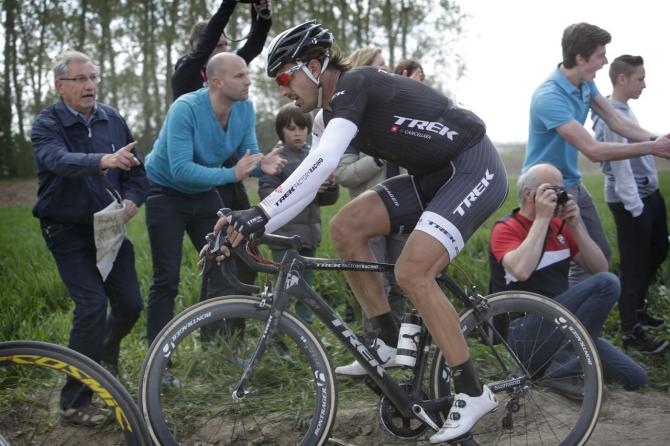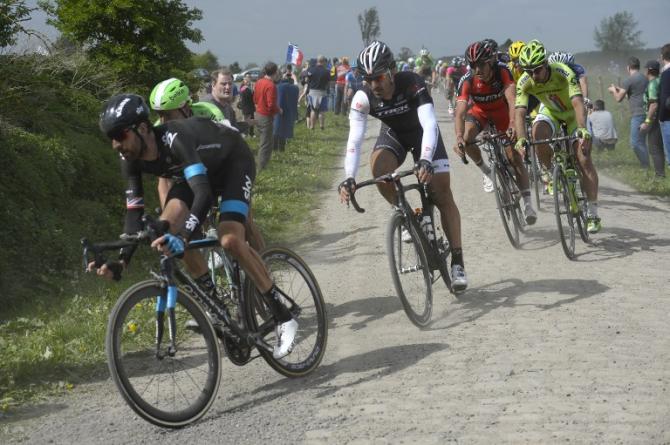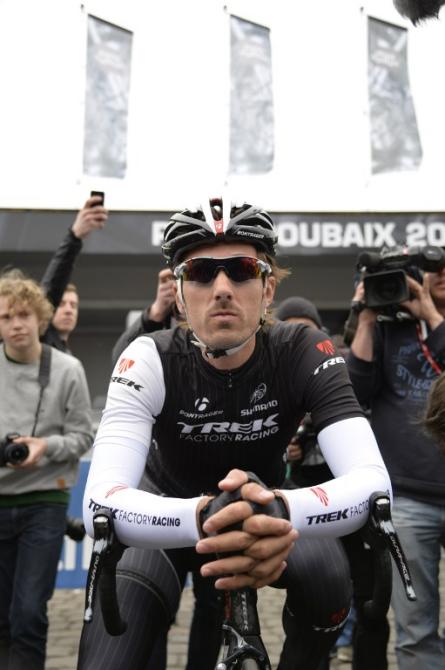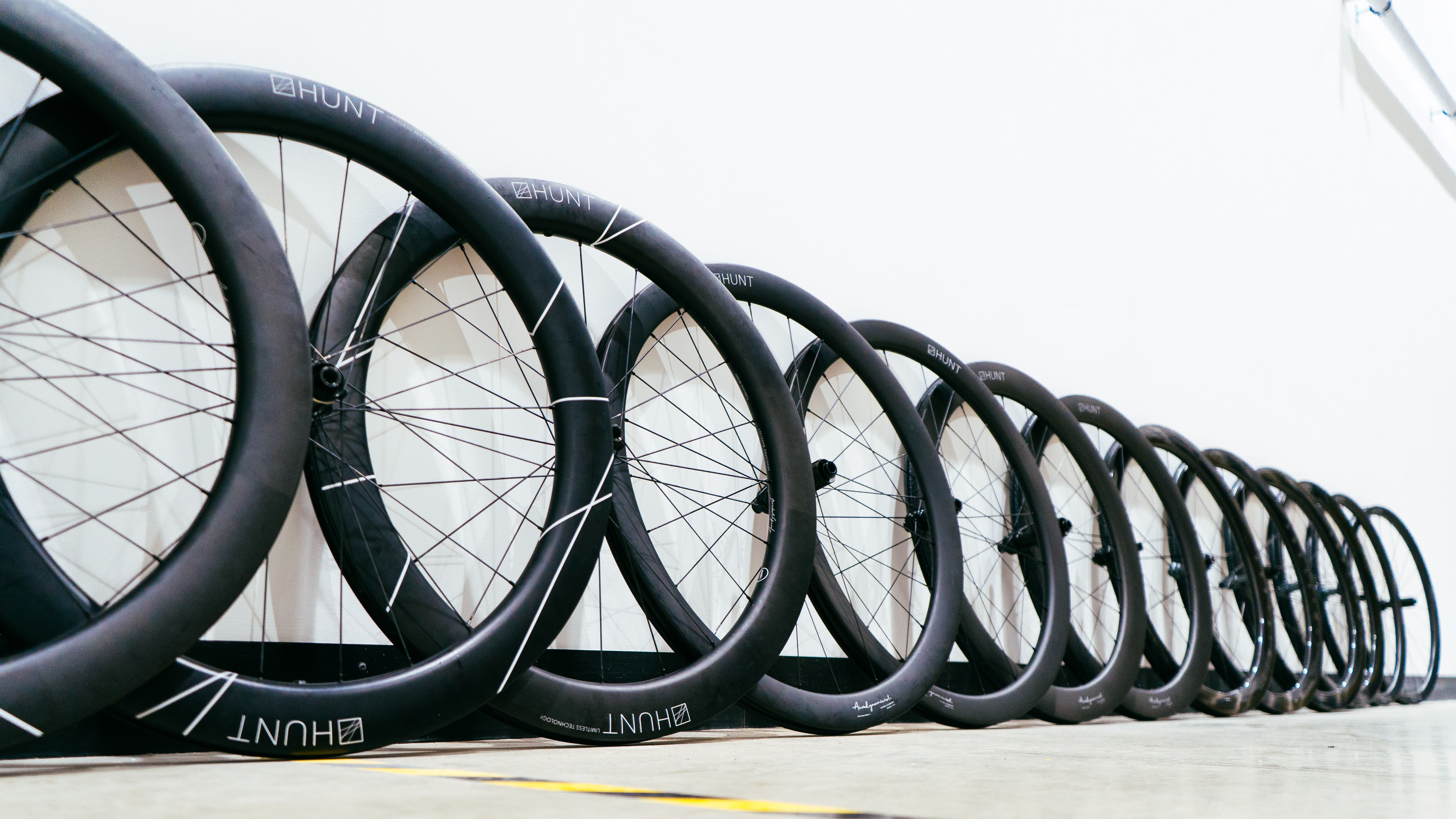Cancellara outnumbered in Paris-Roubaix finale
Swiss continues sequence of podium finishes
The latest race content, interviews, features, reviews and expert buying guides, direct to your inbox!
You are now subscribed
Your newsletter sign-up was successful



Fabian Cancellara (Trek) arrived at Paris-Roubaix as a man of destiny, chasing a fourth victory in the Queen of the Classics and a third Flanders-Roubaix double. He comes away from a pulsating race without setting any further records, although he maintains his remarkable sequence of results in the major Classics.
Since 2010, Cancellara has finished on the podium in every monument that he has completed and he continued that run in Roubaix – his third place behind winner Niki Terpstra (Omega Pharma-QuickStep) was his 12th podium finish in succession in the monuments, during a spell that has included five of his total seven victories.
Cancellara entered the race as the overwhelming favourite but found himself outnumbered by QuickStep in the decisive break, and was unable to peg back Terpstra's winning move in the finale. Second place in the group sprint behind John Degenkolb (Giant-Shimano) put a gloss on Cancellara's day, and in spite of his disappointment at missing out on the win, he assessment of the afternoon was a pragmatic one.
"Honestly, I race for winning, not arriving for second or third, but on the end I'm realistic," Cancellara told reporters on the grass of the Roubaix velodrome afterwards. "When I put everything on the table and analyse afterwards this race, it was quite a strange race with a lot of headwind, crashes and not so much luck from our side on the team."
The terrible beauty of Paris-Roubaix is that almost every man who sets out optimistically from Compiègne in the morning chill has a tale of woe to recount by the time the shadows lengthen over the velodrome some six hours later. The pre-race favourite at least has the consolation of a receptive audience.
After safely negotiating the pitfalls of the Arenberg Forest, the race's first major rendezvous, Cancellara almost came a cropper on a wide and smooth section of road near Hornaing. His teammate Hayden Roulston hopped a kerb and fell in front of him, and while Cancellara stayed upright, he was brought to halt and damaged his bike in the manoeuvre.
"I made the same mistake as at Harelbeke, I waited too long to change the bike and when I did, it had the wrong tyre pressure, but that's not an excuse," Cancellara said. "I spent a lot of energy getting back on after changing bikes. And Roubaix is a race where you can never spend too much energy because you'll be missing it in the end."
The latest race content, interviews, features, reviews and expert buying guides, direct to your inbox!
Boonen's move
Saving energy was on Cancellara's mind, too, when his eternal rival Tom Boonen sprang into action by attacking on the cobbles at Beuvry-la-Forêt with 65 kilometres remaining. For the bones of a decade, Paris-Roubaix has been billed as a prize fight between Cancellara and Boonen, but for once - and correctly as it turned out - he was more concerned by QuickStep's ensemble cast.
"No, not at all," Cancellara said when asked if he had been worried when the Boonen group opened a lead of 30 seconds. "Because I knew there was still a long way to go and I knew Omega were playing their cards. I knew the team usually thought about Tom and less about the others, but today I thought they might play it like that."
As the Tour of Flanders, many teams' tactics seemed to be predicated around attacking in advance of Cancellara's anticipated move in the finale. Yet while Cancellara forced the pace at Ennevelin, the double sector of cobbles at Wannehain and once again at the Carrefour de l'Arbre, there was no single acceleration to match the ferocity of his move on the Oude Kwaremont at the Tour of Flanders last week.
"With the headwind and the situation after the Carrefour, it's normal that nobody wanted to go from distance to the end and there weren't other opportunities to attack," said Cancellara, who found himself in an 11-man leading group on the final run-in to the velodrome. "There were a lot of riders after Carrefour de l'Arbre. I tried, Vanmarcke tried, Degenkolb tried but of course QuickStep tried to play their cards with their tactics and in the end in the strongest team won."
When Terpstra crept off the front with six kilometres to go, there was a brief impasse in the leading group and suddenly, he had a winning margin. Cancellara shook his head when asked if should have allied himself with Degenkolb to shut down the move. "QuickStep had more riders, so what could I do? And Degenkolb had his man [Bert De Backer] in the group. Clearly it was up to him, I wasn't going to pull and then have the others beat me in the sprint."
Degekolb duly beat him in the sprint for second place, but as he drew away from the scrum of reporters behind the podium area, Cancellara was still able to draw positives from his afternoon, his 2014 Classics campaign and his startling sequence of podium finishes.
"To get on the podium and finish second in the group sprint to Degenkolb, it's not bad," he said. "I was second in Sanremo, I won Flanders and am third again here. In the end that has a great value, too, because I could only lose today and that's a very hard situation to manage."

Barry Ryan was Head of Features at Cyclingnews. He has covered professional cycling since 2010, reporting from the Tour de France, Giro d’Italia and events from Argentina to Japan. His writing has appeared in The Independent, Procycling and Cycling Plus. He is the author of The Ascent: Sean Kelly, Stephen Roche and the Rise of Irish Cycling’s Golden Generation, published by Gill Books.
